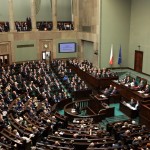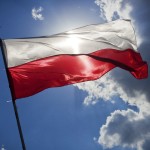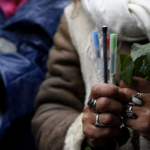In contrast to the Fascist movements of the early 20th century, neo-right parties in Europe no longer pursue the objective of the abolition of liberal democracy, but its internal “transformation” through an ethnic consolidation of the political sphere. The Fascist differentiation between master races and inferior races has been replaced by the principle of peaceful co-existence between different ethnicities. The ideology of the so-called “ethnopluralism” affirms the concept of human rights, but erodes their universal substance with a racial interpretation of the term “nation”.
Given this general picture, the party agenda of the FPÖ (Austrian Freedom Party) under Jörg Haider called for human rights to be extended to include the “right to a homeland”. However, the protection of the “homeland” is not a human right that can be enforced by the state, since in a liberal democracy, the meaning of “homeland” or “cultural identity” is continually renegotiated in public debates on the basis of freedom of expression and freedom of assembly.
Defence of the “Christian West”?
What of necessity remained a vision for Haider is currently being implemented in reality by Viktor Orban. The first major project of the Fidesz government on its re-election in 2010 was a new constitution in which human rights are “embedded” in the idea of a Christian nation. Orban therefore sees himself as the defender of the “Christian West”. The Constitutional Court is obliged to justify its decisions on the basis of the preamble, i.e. in the light of the myth of a Christian nation of Hungary. As the protection of the body of the people is raised to a function of the state, the Hungarian government counters opposition groups, who represent an alternative idea of nationhood, with state authority.
The current term “populism” seeks to play down the ideological orientation of the New Right, which refuses to be diverted from its purpose by changes in the mood of the “people”. Rather, neo-right parties always know what “the” will of “the” people should be and, above all, who belongs to the people. Roma, Jews, atheists, socialists and avant-garde artists are generally not counted as an integral part of the body of the people. As the neo-right ideology threatens from the inside a constitutional democracy committed to universal human rights, this is, technically speaking, “post-Fascism” or, as Orban himself openly states, an “illiberal democracy”. In order to prevent any misunderstandings from the start, it should be stated that despite the new admiration of Horthy, Orban is not a Fascist; that would seriously misrepresent his position.
Demarcation from Muslims
The current movement of refugees shines a rather harsh light on the objections of Christian post-Fascism. The Orban government announces, some would say without any regard for human rights or any Christian scruples, “We don’t want to live together with Muslims.” This nationally motivated demarcation is seamlessly aligned with gestures of contempt and humiliation. Civil war refugees are declared wholesale to be economic migrants, their care passed to private volunteers and their undesirability publicly broadcast.
Hungary is harshly criticised for its treatment of refugees and Roma people by the Council of Europe and its Commission Against Racism and Intolerance. “Any form of contempt, if it intervenes in politics, prepares for or introduces fascism,” as Albert Camus perceptively stated decades ago.
There are indications that the Christian churches in Hungary supported the policies of Viktor Orban, himself a member of the Reformed Church, from the start. Hungarian Catholic bishops publicly call for people to pray for Orban in their masses. Some in the Reformed Church even sympathise with the extreme right Jobbik party. Only the Lutheran church maintains a certain distance from this power. Consistent with the Christian character as outlined by Catholic Church leadership, the humanitarian ideals of Europe and the “Christian West” are not, however, to be defended by a return to politics based on ethnic principles, but by a generous state asylum policy and the dedication of voluntary aid workers who warmly welcome refugees at stations, in gathering points and at borders, supply them with essential needs and offer them accommodation.
(source: Europeinfos #190)
A differenza dei movimenti fascisti del XX secolo, i partiti della nuova destra in Europa oggi non perseguono più l’obiettivo di un’abolizione violenta della democrazia liberale, bensì di una sua “trasformazione” interna attraverso un fondamento etnico della politica. Inoltre, la distinzione fascista tra una razza superiore e una inferiore è stata sostituita dal principio della coesistenza pacifica tra i diversi gruppi etnici. L’ideologia del cosiddetto “etnopluralismo” afferma cioè l’idea dei diritti umani, tuttavia mina la loro sostanza universalistica con una comprensione populistica del concetto di “nazione”.
In questo senso, l’FPÖ di Jörg Haider nel suo programma di partito per un certo tempo aveva espanso i diritti umani al “diritto a una patria”. Tuttavia la tutela della “patria” non è un diritto umano che può essere rivendicato dallo Stato. In una democrazia liberale il significato di “patria” o “identità culturale” è sempre ridefinito nei dibattiti pubblici sulla base della libertà di espressione e di riunione.
Difesa dell’“occidente cristiano”?
Quello che per Haider doveva rimanere una visione, ora è trasformato in realtà da Viktor Orban. Il primo grande progetto del governo Fidesz rieletto nel 2010 è stato quello di una nuova costituzione in cui i diritti umani sono “incastonati” nell’idea di una nazione cristiana. Orban si vede quindi come un difensore dell’“occidente cristiano”. La Corte costituzionale è tenuta a fondare le sue decisioni alla luce del preambolo, cioè alla luce del mito di una nazione ungherese cristiana. Dal momento che la tutela della società civile è elevata a compito del governo, il governo ungherese contrasta i gruppi di opposizione che sostengono una diversa idea di nazione, con i mezzi dell’autorità statale.
Il concetto attuale di “populismo” minimizza l’orientamento ideologico della nuova destra, che non si lascia guidare in alcun modo dai cambiamenti di opinione del “popolo”. I partiti della nuova destra sanno sempre quale debba essere “la volontà “del” popolo e, soprattutto, chi appartenga al popolo. I Rom, gli ebrei, gli atei, i socialisti e gli artisti d’avanguardia di solito non sono parte integrante della società civile. Dal momento che l’ideologia della nuova destra minaccia dall’interno lo stato di diritto, le democrazie impegnate per i diritti umani universali, si tratta in senso stretto di un “post-fascismo”, o, come Orban stesso spesso dichiara apertamente, di una “democrazia illiberale”. Per evitare possibili equivoci fin dall’inizio: Orban non è un fascista, nonostante il novello culto di Horthy; questo sarebbe un travisamento della sua posizione.
Escludere i musulmani
Il movimento attuale dei rifugiati mette in chiarissima luce le contraddizioni di questo post-fascismo cristiano. “Non vogliamo” – come ha annunciato il governo Orban, senza scrupoli cristiani o verso i diritti umani – “vivere con i musulmani”. I motivi populistici per l’esclusione si sposano perfettamente con gesti di disprezzo e umiliazione. I profughi della guerra civile vengono forfettariamente dichiarati migranti per motivi economici, il loro sostentamento è lasciato agli aiuti privati e la loro indesiderabilità etichettata in pubblico. A motivo del suo trattamento dei rifugiati e dei Rom, l’Ungheria è stata fortemente criticata dal Consiglio d’Europa e dal suo Comitato contro il razzismo e l’intolleranza. “Ogni forma di disprezzo, inoculata nella politica”, come Albert Camus sottolineava decenni fa in modo molto lungimirante, “prepara al fascismo o lo introduce”.
Ci sono segnali che mostrano come le Chiese cristiane in Ungheria abbiano sostenuto fin dall’inizio la politica di Viktor Orban, egli stesso membro della Chiesa riformata. I vescovi cattolici ungheresi spesso invitano pubblicamente a pregare nelle funzioni religiose per Orban. Parti della Chiesa riformata simpatizzano persino con il partito Jobbik di estrema destra. Solo la Chiesa luterana mantiene una certa distanza dal potere.
In coerenza con i valori cristiani sottolineati anche dai responsabili della Chiesa cattolica, gli ideali umanitari dell’Europa e dell’“Occidente cristiano” non saranno difesi da un ritorno della politica ai principi etnici, ma da una generosa politica di asilo e dall’impegno dei volontari che nelle stazioni ferroviarie, nei centri di raccolta e alla città di confine accolgono con calore i profughi, si prendono cura delle loro necessità primarie e danno loro alloggio.
(fonte: Europeinfos #190; traduzione italiana a cura di Eurcom)
L’idéologie de la Nouvelle Droite en Hongrie
Contrairement aux mouvements fascistes du début du 20e siècle, les partis de la néo-droite en Europe ne poursuivent plus aujourd’hui l’objectif d’une abolition par la force mais d’une “transformation” interne de la démocratie libérale par un fondement ethnique du politique. En outre, la distinction fasciste entre race des seigneurs et races inférieures est remplacée par le principe de la coexistence pacifique entre des ethnies différentes. L’idéologie dite de l’“ethnopluralisme ou ethno-différencialisme” affirme certes l’idée des droits de l’homme, mais le vide de sa substance universaliste pour lui substituer le concept de “nation” au sens racial (“völkisch”).
C’est dans ce sens que le FPÖ de Jörg Haider inscrivait dans son programme de parti l’élargissement des droits de l’homme à un “droit à la patrie” (“Recht auf Heimat”). Toutefois, la protection de la patrie n’est pas un droit de l’homme qui puisse être poursuivi par l’État par voie de justice. En effet, dans une démocratie libérale, le sens de “patrie” ou d’“identité culturelle” est renégocié dans le cadre de débats publics sur la base de la liberté d’opinion ou de réunion.
Défense de l’”Occident chrétien”?
Ce qui, pour Haider, resterait une vision, est aujourd’hui effectivement mis en œuvre par Viktor Orban. Le premier grand projet du gouvernement Fidesz réélu en 2010 a été une nouvelle Constitution, dans laquelle les droits de l’homme sont “intégrés” à l’idée d’une nation chrétienne. Orban se présente donc comme défenseur de l’“Occident chrétien”. La Cour constitutionnelle est tenue de motiver ses décisions à la lumière du préambule, c’est-à-dire à la lumière du mythe d’une nation chrétienne de Hongrie. Étant donné qu’il revient à l’État de protéger le peuple (“Volkskörper”), le gouvernement hongrois recourt aux moyens de l’autorité publique à l’encontre des groupes d’opposition qui défendent une autre idée de la nation.
Le concept courant de “populisme” minimise l’orientation idéologique des Nouvelles Droites, laquelle ne se laisse nullement mener par les changements d’humeur du “peuple” (“Volk”). Au contraire, les parties de la néo-droite savent depuis toujours ce que doit être “la” volonté “du” peuple et surtout qui fait partie du peuple. En règle générale, les Roms, les juifs, les athées, les socialistes et les avant-gardes artistiques ne constituent pas une partie intégrante du corps de la nation (“Volkskörper”). Dès lors que l’idéologie de la néo-droite menace de l’intérieur l’État de droit et la démocratie engagée en faveur des droits universels de la personne, il s’agit stricto sensu d’un “post-fascisme” ou, comme Orban lui-même le formule ouvertement, d’une “démocratie non libérale”. En prévention à d’éventuels malentendus: en dépit du culte récent dont fait l’objet l’amiral Horthy, Orban n’est pas un fasciste; ce serait une représentation totalement fausse de son positionnement.
Différenciation par rapport aux musulmans
L’actuel mouvement des réfugiés projette une lumière très crue sur les contradictions d’un post-fascisme chrétien. Comme l’annonce le gouvernement Orban, et que certains considèrent comme sans scrupules par rapport aux droits de l’homme et au message chrétien, “Nous ne voulons pas de cohabitation avec les musulmans”. La motivation nationale (“völkisch”) de cette différenciation se combine sans difficulté à des gestes de mépris et d’humiliation. Les réfugiés ayant fui la guerre civile sont en gros assimilés à des demandeurs d’asile économiques, leur prise en charge est confiée à des intervenants privés et des affiches les déclarent publiquement persona non grata. En raison de son comportement envers les réfugiés et les Roms, la Hongrie a été sévèrement critiquée par le Conseil de l’Europe et sa Commission contre le racisme et l’intolérance. Pourtant, comme Albert Camus le soulignait avec lucidité il y a déjà plusieurs décennies, “Toute forme de mépris, si elle intervient en politique, prépare ou instaure le fascisme.”
Il semblerait que les Églises chrétiennes de Hongrie aient soutenu dès le début la politique de Viktor Orban, lui-même membre de l’Église réformée. Des évêques catholiques hongrois appellent publiquement à prier pour Orban pendant la messe. Des courants de l’Église réformée sympathisent même avec le parti l’extrême droite Jobbik. Seule l’Église luthérienne se tient à une certaine distance du pouvoir.
En cohérence avec le caractère chrétien tel que défini par la tête de l’Eglise catholique, les idéaux humanitaires de l’Europe et l’“Occident chrétien” ne sauraient être défendus par un retour de la politique à des principes ethniques. Ils le seront plutôt par une politique publique généreuse en matière d’asile et par l’engagement de bénévoles qui accueillent chaleureusement les réfugiés dans les gares, les lieux de rassemblement et les localités frontières, en leur fournissant les biens de première nécessité et en leur offrant le gîte et le couvert.
(source: Europeinfos #190)
Zur Ideologie der Neuen Rechten in Ungarn
Im Gegensatz zu den faschistischen Bewegungen des frühen 20. Jahrhunderts verfolgen neorechte Parteien in Europa heute nicht mehr das Ziel einer gewaltsamen Abschaffung, sondern einer inneren „Transformation“ liberaler Demokratie durch eine ethnische Fundierung des Politischen. Darüber hinaus wird die faschistische Unterscheidung von Herren- und Unterrasse durch das Prinzip der friedlichen Koexistenz zwischen unterschiedlichen Ethnien ersetzt. Die Ideologie des sogenannten „Ethnopluralismus“ affirmiert zwar die Idee der Menschenrechte, höhlt jedoch deren universalistische Substanz durch einen völkisch verstandenen Begriff der „Nation“ aus.
In diesem Sinn forderte die FPÖ unter Jörg Haider zwischenzeitlich in ihrem Parteiprogramm, die Menschenrechte um ein „Recht auf Heimat“ zu erweitern. Der Schutz der „Heimat“ ist jedoch kein Menschenrecht, das vom Staat eingeklagt werden kann. Denn der Sinn von „Heimat“ oder „kultureller Identität“ wird in einer liberalen Demokratie in öffentlichen Debatten auf der Grundlage der Meinungs- und Versammlungsfreiheit je neu ausgehandelt.
Verteidigung des „christlichen Abendlandes“?
Was für Haider eine Vision bleiben musste, wird heute von Viktor Orban in die Realität umgesetzt. Das erste große Projekt der 2010 wiedergewählten Fidesz-Regierung war eine neue Verfassung, in der die Menschenrechte in die Idee einer christlichen Nation „eingebettet“ werden. Orban versteht sich daher als Verteidiger des „christlichen Abendlandes“. Das Verfassungsgericht ist verpflichtet, seine Entscheidungen im Licht der Präambel, d.h. im Licht des Mythos einer christlichen Nation Ungarns, zu begründen. Da die Bewahrung des Volkskörpers zur Aufgabe des Staates erhoben wird, geht die ungarische Regierung gegen oppositionelle Gruppen, die für eine andere Idee der Nation eintreten, mit den Mitteln der Staatsgewalt vor.
Der gängige Begriff des „Populismus“ verharmlost die ideologische Ausrichtung der Neuen Rechten, die sich keineswegs von Stimmungsschwankungen des „Volkes“ leiten lässt. Vielmehr wissen neorechte Parteien immer schon, was „der“ Wille „des“ Volkes zu sein hat und vor allem wer zum Volk gehört. Roma, Juden, Atheisten, Sozialisten und avantgardistische Künstler sind in der Regel nicht integraler Teil des Volkskörpers. Da die neorechte Ideologie die rechtsstaatliche, den universalen Menschenrechten verpflichtete Demokratie von innen her bedroht, handelt es sich genau genommen um einen „Postfaschismus“, oder, wie Orban selbst offen ausspricht, um eine „illiberale Demokratie“. Um möglichen Missverständnissen vorweg entgegenzutreten: Orban ist trotz der neuen Horthy-Verehrung kein Faschist; dies wäre eine falsche Darstellung seiner Position.
Abgrenzung gegenüber Muslimen
Die aktuelle Flüchtlingsbewegung rückt die Widersprüche eines christlichen Postfaschismus in ein denkbar grelles Licht. „Wir wollen“, wie die Orban-Regierung ohne menschenrechtliche oder christliche Skrupel verkündet, „nicht mit Muslimen zusammenleben“. Die völkisch motivierte Abgrenzung verbindet sich nahtlos mit Gesten der Verachtung und Demütigung. Bürgerkriegsflüchtlinge werden pauschal zu Wirtschaftsflüchtlingen erklärt, ihre Versorgung privaten Helfern überlassen und ihre Unerwünschtheit öffentlich plakatiert. Wegen seines Umgang mit Flüchtlingen und Roma wurde Ungarn vom Europarat und dessen Ausschuß gegen Rassismus und Intoleranz scharf kritisiert. „Jede Form von Verachtung, in die Politik eingedrungen“ bereitet jedoch, wie Albert Camus bereits vor Jahrzehnten hellsichtig betonte, „den Faschismus vor oder führt ihn ein.“
Es gibt Anzeichen dafür, dass die christlichen Kirchen in Ungarn die Politik von Viktor Orban, selber Mitglied der reformierten Kirche, von Anfang an unterstützt haben. Ungarische katholische Bischöfe rufen öffentlich dazu auf, in den Gottesdiensten für Orban zu beten. Teile der reformierten Kirche sympathisieren selbst mit der rechtsextremen Jobbik-Partei. Allein die lutherische Kirche hält eine gewisse Distanz zur Macht.
Im Einklang mit ihrem von der Leitung der katholischen Kirche betonten christlichen Charakter, werden die humanitären Ideale Europas und das „christliche Abendland“ jedoch nicht durch eine Rückkehr der Politik zu ethnischen Prinzipien verteidigt, sondern von einer großzügigen staatlichen Asylpolitik und dem Engagement freiwilliger Helfer/innen, die auf Bahnhöfen, in Sammelstellen und an Grenzorten Flüchtlinge warmherzig willkommen heißen, mit dem Notwendigsten versorgen und ihnen ein Quartier geben.
(quelle: Europeinfos #190)
Hans Schelkshorn
Latest posts by Hans Schelkshorn (see all)
- Ideology of the New Right in Hungary - 9 febbraio 2016











